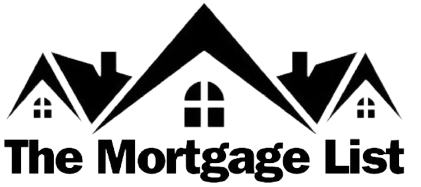A Comprehensive Guide to Mortgage Insurance on FHA Loans
Introduction
Navigating the landscape of mortgage insurance, especially concerning FHA loans, is crucial for homeowners and prospective buyers alike. Understanding the intricacies of mortgage insurance can save you money and provide clarity in an otherwise complex process. In this comprehensive guide, we delve into the nuances of mortgage insurance on FHA loans, shedding light on critical aspects and offering expert advice to empower your decision-making process.
Understanding FHA Loans
FHA loans, backed by the Federal Housing Administration, are renowned for their accessibility and flexibility, catering primarily to first-time homebuyers and those with less-than-perfect credit scores. These loans offer low down payment requirements, making homeownership achievable for a broader spectrum of individuals.
Exploring Mortgage Insurance on FHA Loans
Mortgage insurance is a vital component of FHA loans, providing protection to lenders in case borrowers default on their payments. It typically comes in two forms: upfront mortgage insurance premium (UFMIP) and annual mortgage insurance premium (MIP). Let’s delve deeper into each:

Upfront Mortgage Insurance Premium (UFMIP)
UFMIP is a one-time fee paid at the inception of the loan. It is calculated as a percentage of the loan amount and is often rolled into the loan itself, thereby minimizing out-of-pocket expenses for borrowers.
The UFMIP ensures that the FHA has the necessary funds to cover potential losses stemming from defaulted loans, safeguarding lenders against financial risks.
Annual Mortgage Insurance Premium (MIP)
In addition to the UFMIP, FHA borrowers are required to pay an annual MIP. Unlike UFMIP, which is a lump-sum payment, MIP is spread out over the life of the loan and paid on a monthly basis. The amount of MIP is contingent upon various factors, including the loan amount, loan-to-value ratio, and the duration of the loan.
The MIP serves as an ongoing safeguard for lenders, compensating them for assuming higher levels of risk associated with FHA loans.
Benefits of Mortgage Insurance on FHA Loans
While mortgage insurance may seem like an additional expense, especially for FHA borrowers, it offers several benefits that can outweigh the costs:
- Lower Down Payment Requirements: FHA loans allow borrowers to purchase a home with a down payment as low as 3.5%, making homeownership more accessible.
- Flexible Credit Requirements: FHA loans are attainable for individuals with less-than-perfect credit scores, offering a pathway to homeownership for a broader demographic.
- Competitive Interest Rates: Despite accommodating borrowers with lower credit scores, FHA loans often feature competitive interest rates, further enhancing affordability.
These benefits underscore the importance of mortgage insurance on FHA loans in facilitating homeownership for diverse segments of the population.

Navigating the Mortgage Insurance Process
Understanding the intricacies of mortgage insurance on FHA loans is essential for navigating the homebuying process seamlessly. Here are some key steps to streamline the process:
- Consultation with Lenders: Engage with reputable lenders specializing in FHA loans to gain insights into the mortgage insurance process tailored to your specific circumstances.
- Financial Preparedness: Assess your financial situation meticulously to ascertain your readiness for homeownership, taking into account factors such as income stability, debt-to-income ratio, and credit history.
- Evaluation of Loan Options: Explore various loan options available through the FHA, considering factors such as down payment requirements, interest rates, and mortgage insurance premiums.
- Documentation and Approval: Compile all necessary documentation, including income verification, tax returns, and employment history, to expedite the loan approval process.
By following these steps diligently, you can navigate the mortgage insurance process with confidence, ensuring a smooth transition to homeownership.
FAQs (Frequently Asked Questions)
Q: Can I cancel my FHA mortgage insurance? A: Yes, FHA mortgage insurance can be canceled under certain conditions. For loans originated after June 3, 2013, if you put down less than 10% on the home, the MIP will be payable for the entire loan term. However, if you put down more than 10%, the MIP can be canceled after 11 years.
Q: What is the purpose of FHA mortgage insurance? A: The primary purpose of FHA mortgage insurance is to protect lenders against losses in the event of borrower default. It enables borrowers with lower credit scores and minimal down payments to access homeownership opportunities.
Q: How is FHA mortgage insurance calculated? A: FHA mortgage insurance premiums are calculated based on several factors, including the loan amount, loan-to-value ratio, and the term of the loan. The premiums are typically expressed as a percentage of the loan amount and can be paid upfront or as part of the monthly mortgage payments.
Q: Are FHA loans only for first-time homebuyers? A: While FHA loans are popular among first-time homebuyers due to their low down payment requirements and flexible credit criteria, they are not exclusive to this demographic. Repeat buyers can also benefit from FHA loans, provided they meet the eligibility criteria.
Q: What is the difference between FHA mortgage insurance and conventional private mortgage insurance (PMI)? A: The primary difference lies in the entities that administer the insurance. FHA mortgage insurance is provided by the Federal Housing Administration, while conventional PMI is offered by private insurers. Additionally, FHA mortgage insurance premiums tend to be higher and have different cancellation policies compared to conventional PMI.

Q: Are FHA loans a viable option for investment properties? A: FHA loans are primarily intended for owner-occupied properties, making them less suitable for investment properties. However, FHA 203(k) loans allow borrowers to finance both the purchase and renovation costs of a property, making them a potential option for investors seeking to rehabilitate properties for rental or resale purposes.
Conclusion
Navigating the realm of mortgage insurance on FHA loans can be daunting, but armed with the right knowledge and guidance, you can make informed decisions that pave the way to homeownership. By understanding the role of mortgage insurance, evaluating your options diligently, and seeking professional advice when needed, you can embark on your homeownership journey with confidence and clarity.
Read More:>

